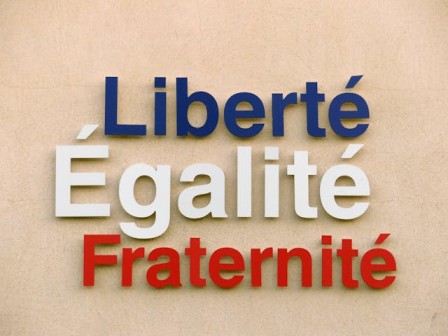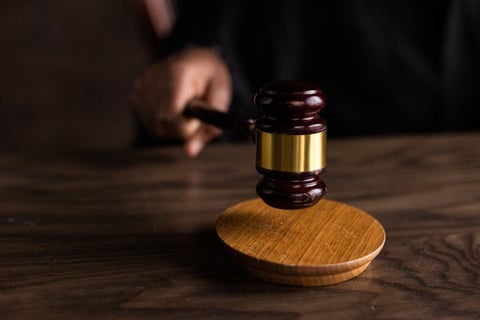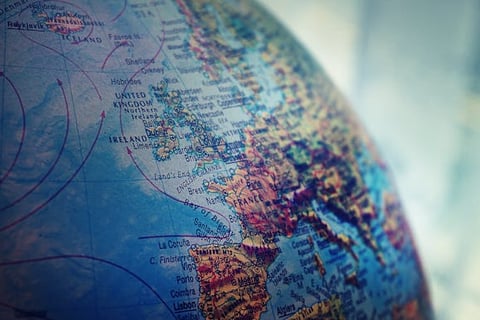Top Romanian Court Invalidates Presidential Election: Elon Musk Calls It “The End of Democracy in Europe” as Ursula von der Leyen Under Watch
Romania’s supreme court has annulled the first round of its presidential election, won by a far-right figure in what analysts called a “surprise” victory. The decision has triggered political upheaval in the country and sent shockwaves through Europe. The billionaire entrepreneur Elon Musk weighed in, saying on Twitter that this is “the end of democracy in Europe.
TRENDYGLOBAL POLITICS & DIPLOMACYHOT NEWS
Steve McNair
12/20/20246 min read


Romania’s supreme court has annulled the first round of its presidential election, won by a far-right figure in what analysts called a “surprise” victory. The decision has triggered political upheaval in the country and sent shockwaves through Europe. The billionaire entrepreneur Elon Musk weighed in, saying on Twitter that this is “the end of democracy in Europe.
Meanwhile, Europe’s scourge, Ursula von der Leyen — the self-anointed “Queen of Europe” who excelled at the dark art of backroom deal-making as President of the European Commission — is mired in lawsuits over her controversial management of COVID-19 vaccine procurement. They are all overlapping crises, and they are painting a picture that calls into question both the viability of democracy and accountability in leadership within the European Union.
The Romanian Election Scandal
The annulment of Romania’s first-round presidential vote was ordered after a judge determined that serious irregularities took place in the electoral process. Allegations of voter suppression, tampering with ballots, and improper influence by a far-right candidate, Alexandru Popescu, were central to the court’s ruling. Popescu, a polarizing figure known for his overt nationalist language, had emerged from these elections as a new president, but by a narrow margin; his victory was instantly challenged by opposition parties and civil society layers.
The judge’s decision referenced evidence of:
- Electronics Voting Machines Tampering: Investigations revealed discrepancies in vote counts in key areas.
- Undisclosed foreign funds in Popescu’s campaign: Popescu’s campaign purportedly received undisclosed foreign funds.
- Intimidation tactics: There were reports of voters being intimidated by people connected to Popescu’s party.
The decision to annul the election has left Romania in political chaos. With the second round of voting indefinitely delayed, public faith in the country’s democratic processes is quickly eroding.
## Elon Musk’s Reaction
Elon Musk, the brash owner of Tesla and X (formerly known as Twitter), expressed his “disappointment” with the annulment on social media. “This is the end of democracy in Europe,” he tweeted to his 200 million followers. “A court undoing the will of the people? Dangerous precedent.”
Musk’s comments sparked an international conversation. Whereas some agreed that he was right to do so, as judiciaries acting as unelected institutions undermine democratic sovereignty, others highlighted the need to tackle electoral misconduct to ensure the fairness of the electoral process.
His tweet immediately took off, with hashtags like #SaveRomania, #DemocracyUnderThreat, and #EuropeInCrisis trending on Twitter globally. Musk’s critics accused him of overly simplifying a complex situation, while his supporters lauded him as a bulwark of democracy.
The Wider Democratic Crisis in Europe
Romania’s election debacle is one of many challenges facing democracy in Europe. Populist movements are conquering the continent, and people’s faith in conventional political institutions is dwindling. Elon Musk’s tweet reflected wider concerns about the health of democracy in the European Union.
In Hungary and Poland, for example, the countries have come under fire in recent years for undermining judicial independence and media freedom. Now, with Romania’s EU election in limbo, many worry that the European Union is losing its grip on democratic norms in member states.
## Also in the News: The Ursula von der Leyen Controversy
In dramatic fashion, Ursula von der Leyen faces trial for her role in procuring COVID-19 vaccines at the height of the pandemic. Her critics have accused her of circumventing the European Parliament in authorizing multi-billion euro contracts with pharmaceutical companies.
Multiple red flags have been raised by leaked documents and whistleblower testimonies:
- Lack of transparency: Details of the contracts were said to have been kept hidden from both lawmakers and the public, including pricing and terms.
- Conflict of interest: There are allegations that von der Leyen’s advisors had close ties to pharmaceutical lobbyists.
The fast track raised doubts as to whether proper due diligence had been performed.
The trial, which has gripped Europe, could have important implications for von der Leyen’s political future and the credibility of the European Commission.
## Public Reaction and Protests
There were protests in cities around Romania and in other European cities both over the canceled election and the von der Leyen trial. Protesters are seeking greater accountability and transparency from their leaders.
In Bucharest, tens of thousands of people gathered outside government buildings, chanting slogans such as “Respect our vote” and “No to far-right corruption.” Rallies in Brussels also called for von der Leyen to resign, as protesters displayed signs reading “Justice for Europe” and “No more secret deals.”
Analysis: What Does This Mean for Europe?
In Romania and in Brussels, simultaneous crises demonstrate how fragile democratic governance has become in Europe. Analysts say that if the problems are not tackled quickly and forcefully, they may have permanent consequences for the E.U.'s unity and global standing.
Key implications:
Erosion of public trust: Increasing disavowal among Europeans is being driven by the string of scandals and crises.
The rise of populism: The perceived failures of traditional institutions offer fertile ground for extreme ideologies.
Disputes over democratic standards strain EU cohesion, risking deeper divides among member countries.
How Elon Musk Helped Shape the Narrative
Elon Musk’s involvement has added a wrinkle to the debate. He has also become one of the world’s most influential figures, and his comments have such weight. But they also underscore the dangers of boiling down complicated political questions to a single social media-spurred crisis.
Musk’s tweet raises questions about the role of tech billionaires in shaping public discourse. Although his critique of European democracy resonated with many, others contended that his view was riddled with a lack of nuance and context.
What Happens Next?
Romania’s electoral commission is seeking to resolve the irregularities detected by the court, but the timing of the next round of voting is unclear. A trial in Brussels of Ursula von der Leyen could drag into months and have ramifications for the European Commission’s leadership.
The stakes are high. For Romania, whether its election crisis can be resolved will tell the nation if it can rebuild confidence in its democratic institutions. For the EU, both crises will be a litmus test of its commitment to transparency, accountability, and the rule of law.
FAQ: Do You Believe Europe Remains a Democracy?
Q: Is democracy in Europe broken?
A: Europe’s democratic system is being tested, but it is not broken. Read more: What the rise of populism tells us about democracy in the world today. Challenges like populism, corruption, and institutional inefficiencies are serious but are also indicative of the need for reform, not a renunciation of democratic principles.
Q: What is the judiciary’s role in preserving democracy?
Q: Why does the judiciary matter to democracy, and why is it so important that elections in democracy function fairly? Judgments that trump electoral outcomes, however, need to be based on obvious and transparent evidence if public confidence is to be retained.
Q: Should far-right movements in Europe pose a threat to democracy?
A: Far-right movements threaten democratic norms when they promote authoritarian policies or when they seek to undermine civil liberties. Their emergence, however, is often symptomatic of deeper underlying social problems — such as economic inequality and cultural fragmentation — that must be addressed.
Q: How important is Elon Musk’s remark on European democracy?
A: Musk’s remarks have intensified the conversation and brought international scrutiny to the situation. His comment is influential, but it should be taken with several grains of salt, and the complexities of the situation should not be forgotten.
Q: What reforms are necessary to facilitate democracy in Europe?
Q: What do you see as the key reforms needed? Reinforcing EU mechanisms of supervision might also help address democratic backsliding among member states.
Q: Will the EU bounce back from all these crises?
A: Yes, though recovery will take decisive action to remedy the underlying causes of these crises. This involves holding leaders accountable, renewing public confidence, and reaffirming the EU’s commitment to democratic values.
Romania’s annulment of its presidential vote and the controversy over Ursula von der Leyen highlight the crisis of European democracy. Though these events reveal profound weaknesses, they also offer a chance to reflect, reform, and renew. How Europe grasps this moment will determine its democratic fate.
Written by Steve McNair






Updates
Stay informed with the latest trending news.
Insights
News
contact@flashtopnews.com
+1234567890
© 2024. All rights reserved.
Disclaimer: We are affiliates. It means that we may receive a commission if you ever purchase a product on our site, with no-extra cost for you of course... Thank You Very Much!
